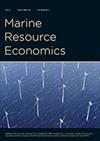Perceived Risk and Risk Management Strategies in Pond Aquaculture
IF 1.7
3区 经济学
Q2 ECONOMICS
引用次数: 18
Abstract
The growing aquaculture industry is facing several challenges including risks and uncertainties. Studies exploring farmers’ risk perceptions and risk management strategies are, however, limited within pond aquaculture, although they are well described within the field of agriculture. This study explores farmers’ risk perceptions and risk management strategies in pond aquaculture and the relationship of risk perceptions and risk management strategies with farm and farmers’ characteristics. The data are analyzed using principal component analysis and multivariate regression. The results show that price variability and financial risks are perceived as the most influential risk factors. Farm management and financing are perceived as the most effective risk management strategies. In most cases, farmers need to focus on more than one risk management strategy to address a particular type of risk. This study provides knowledge of farmers’ risk perceptions and strategies, which can be used to develop better and more focused management strategies. The authors would like to thank three anonymous reviewers for their suggestions and comments that helped substantially to improve the paper. The authors would also like to thank the Danish International Development Agency (DANIDA) for its financial support for the project “Upgrading Pangas and Tilapia Value Chains in Bangladesh,” project number F38A26778, under which this research was conducted.池塘养殖的感知风险和风险管理策略
日益增长的水产养殖业面临着包括风险和不确定性在内的若干挑战。然而,探索农民风险认知和风险管理策略的研究仅限于池塘水产养殖,尽管它们在农业领域得到了很好的描述。本研究探讨了池塘养殖农户的风险认知和风险管理策略,以及风险认知和风险管理策略与养殖场和农户特征的关系。采用主成分分析和多元回归对数据进行分析。结果表明,价格波动和金融风险被认为是影响最大的风险因素。农场管理和融资被认为是最有效的风险管理战略。在大多数情况下,农民需要关注一种以上的风险管理策略来应对特定类型的风险。本研究提供了农民风险认知和策略的知识,可用于制定更好、更有针对性的管理策略。作者要感谢三位匿名审稿人的建议和评论,他们的建议和评论极大地帮助了本文的改进。作者还要感谢丹麦国际开发署(DANIDA)为“孟加拉国鲶鱼和罗非鱼价值链升级”项目(项目编号为F38A26778)提供的资金支持,本研究正是在该项目下进行的。
本文章由计算机程序翻译,如有差异,请以英文原文为准。
求助全文
约1分钟内获得全文
求助全文
来源期刊

Marine Resource Economics
农林科学-渔业
CiteScore
4.30
自引率
10.30%
发文量
25
审稿时长
>12 weeks
期刊介绍:
Marine Resource Economics (MRE) publishes creative and scholarly economic analyses of a range of issues related to natural resource use in the global marine environment. The scope of the journal includes conceptual and empirical investigations aimed at addressing real-world oceans and coastal policy problems. Examples include studies of fisheries, aquaculture, seafood marketing and trade, marine biodiversity, marine and coastal recreation, marine pollution, offshore oil and gas, seabed mining, renewable ocean energy sources, marine transportation, coastal land use and climate adaptation, and management of estuaries and watersheds.
 求助内容:
求助内容: 应助结果提醒方式:
应助结果提醒方式:


